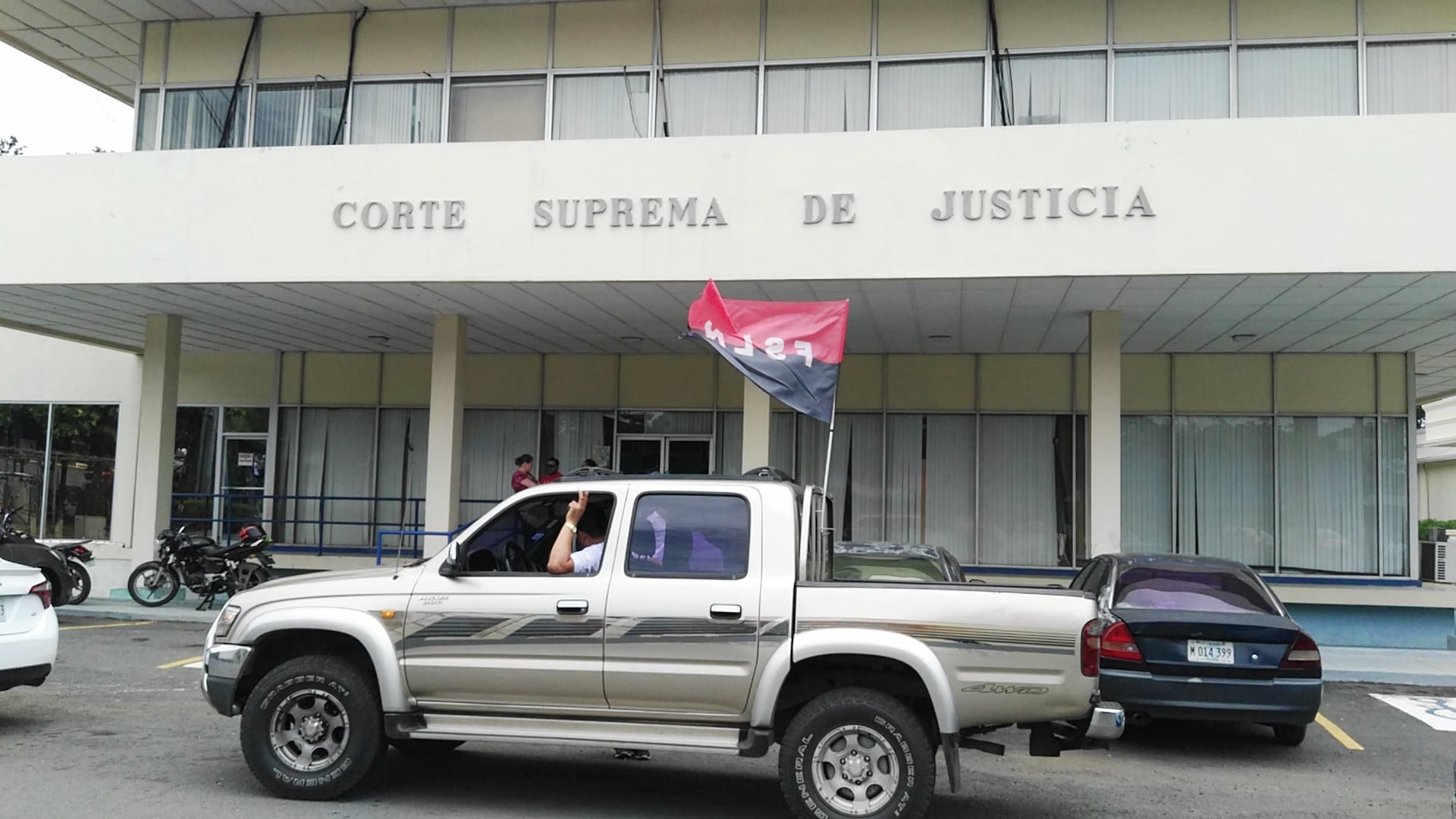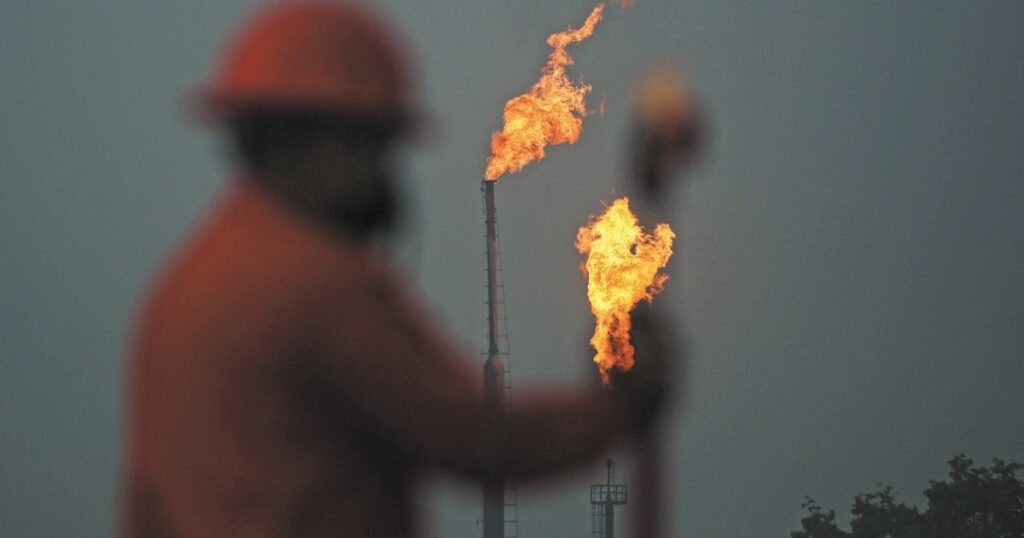A total of 23 judges and prosecutors who respond to the interests of the Ortega regime acting against Nicaraguans and their public rights and freedoms were sanctioned on July 15 by the United States Government, along with a group of other officials from Guatemala, Honduras and The Savior. The sanctions against the Ortega judiciary include the revocation or prohibition of the US visa and the prohibition of entry or admission to the United States and are based on the Law to Strengthen Nicaragua’s Adherence to the Conditions for Electoral Reform, known as the Renacer Law.
The ten sanctioned prosecutors are: Yubelca Pérez Alvarado, Perla Baca, Carlos Espinoza, Luis Alberto Mena, Jorge Luis Arias, Martha Irene Morales Mendoza, María Pérez Mojica, Marling Castro Rodríguez, Andrea Salas and Auxiliadora del Carmen Sequeira Suazo.
The list also includes the thirteen judges: Erick Laguna Averruz, Nadia Tardencilla Rodríguez, Rosa Baca Cardoza, Irma Laguna, Luden Quiroz García, Melvin Vargas García, Ángel Jancarlos Fernández González, Nancy Aguirre Gudiel, William Howard López, Verónica Fiallos Moncada, Félix Salmerón Moreno, Rolando Salvador Sanarrusia Munguia and Ulisa Yahoska Tapia Silva.
Who are the ten sanctioned Ortega prosecutors?
Among the ten prosecutors sanctioned by the United States are: the prosecutors of the Public Ministry of Managua Yubelca del Carmen Perez Alvarado, Marling de Jesus Castro Rodriguez, Andrea delCarmen Salas, Y Jorge Luis Arias Jarquin. Also: Pearl of the Angels Bacachief prosecutor of the department of Chinandega, and the prosecutor Carlos Rafael Espinoza Castilla, Y Martha Ileana Morales Mendoza, prosecutor and Director of Planning of the Public Ministry headquarters in Managua.
All of them are accused of undermining democratic processes or institutions by exercising procedural discretion to present false charges in order to imprison opponents of the regime in the period prior to the presidential elections of November 2021, in which Daniel Ortega was re-elected. without political competition for a fourth consecutive presidential term, after ordering the imprisonment of more than sixty political and civic leaders, activists, human rights defenders, businessmen, peasants, students, independent professionals, journalists, among others, including seven presidential candidates.
The list of prosecutors is completed by:
- Luis Alberto Mena Gamezprosecutor in Nueva Segovia, who brought the case against political prisoner Douglas Cerros and pursued spurious charges, convictions, and harsh sentences against private citizens who criticize the government.
the political prisoner Douglas Alfredo Cerros Lanzas He was sent home this Sunday, July 3, after the justice system granted him the regime of family coexistence. The prisoner of conscience was arrested on November 6, on the eve of the national votes in which Daniel Ortega and Rosario Murillo secured one more mandate, after arresting the main opposition candidates, civic leaders and politicians. Rumors were the only evidence in the trial for cybercrimes and “conspiracy”, after the head of the Ocotal Judicial Assistance Directorate, Deputy Commissioner Bayron Mauricio Maradiaga Rubio, and the main witness of the Prosecutor’s Office, assured that he arrested Douglas Cerros Lanzas because “they told him” that he was promoting the “no vote”.
- María Francis Pérez Mojica, prosecutor in Nueva Segoviaaccused of leading the regime’s case against pro-democracy activist and political prisoner Donald Alvarenga, after admitting trumped-up charges, convictions, and harsh sentences against the regime’s pro-democracy opponents.
the political prisoner Donald Margarito Alvarenga Mendoza He was arrested on November 6, 2021 and on January 13, 2022, the Ortega judge sentenced him for allegedly inciting “hate and violence” through Facebook posts and WhatsApp messages. Alvarenga, 56, is a former FSLN guerrilla combatant and former Interior Ministry official in the 1980s. His conviction made him the first Nicaraguan opponent convicted under the Special Cybercrime Law or “Gag Law” and Law 1055 or “Sovereignty Law”both approved at the end of 2020. The Chichigalpino was accused of the alleged crimes of “subversion, disobedience and rebellion at the level of conspiracy to affect national integrity.”
- Auxiliadora del Carmen Sequeira Suazo, prosecutor in Estelíwho brought the case against pro-democracy activist and political prisoner Alexis Peralta, based on false charges, convictions and sentences against him.
the political prisoner Alexis Peralta-Espinoza He is a public accountant from Condega, Estelí, and was also arrested on November 6, 2021. On February 9, Peralta, 48, was tried and found guilty of the alleged crimes of “conspiracy to undermine national integrity to the detriment of the State of Nicaragua and society,” and “propagation of false news through information and communication technologies.” Both charges contemplated in the Special Cybercrime Law or “Gag Law” and Law 1055 or “Sovereignty Law”, used by the regime to criminalize freedom of expression.
Who are the thirteen sanctioned Ortega judges?
The details of the thirteen judges sanctioned by the United States are:
- Erick Ramon Laguna Averruzaccused of convicting and sentencing pro-democracy leaders on vague and trumped-up charges of “undermining national integrity” in the sham trials of opposition activist Alexis Peralta and unaffiliated farmer Santos Camilo Bellorin, a 56-year-old peasant sentenced to eleven years in prison. jail after he was linked to social media profiles even though he has never had Facebook or Twitter accounts.
Read: The story of Santos Bellorín, the peasant without a smartphone convicted of cybercrimes
- Rosa Velia Baca Cardozaa judge who undermined democratic processes or institutions when she convicted and sentenced a pro-democracy leader on vague and false charges of “undermining national integrity” in the mock trial of opposition activist Donald Alvarenga.
- Irma Oralya Laguna Cruzjudge who undermined democratic processes or institutions when she convicted and sentenced a pro-democracy leader on vague and false charges of “undermining national integrity” in the sham trial of opposition activist Evelyn Pintohuman rights defender convicted of “conspiracy” and “cybercrimes”.
Read more details: Human rights defender Evelyng Pinto found guilty
- Melvin Leopoldo Vargas Garciajudge who undermined democratic processes or institutions when he convicted and sentenced a pro-democracy leader on vague and false charges of “undermining national integrity” in the mock trial of opposition activist Samantha Jiron, university student, political activist, feminist and painter, who was exiled and after returning to Nicaragua, at the age of 21, became one of the youngest areas of conscience of the dictatorship.
Read more details: The story of Samantha Jirón, one of the regime’s youngest political prisoners
In addition, the judges are included in the list:
- Nancy Del Carmen Aguirre Gudielwho convicted and sentenced opposition activist Irving Larios.
- William Irving Howard Lopezwho convicted and sentenced the opposition activist Nidia Barbosa.
- Veronica Fiallos Moncadawho convicted and sentenced the independent citizen Douglas Cerros.
- Rolando Salvador Sanarrussia Munguiawho convicted and sentenced opposition activist Yoel Sandino.
They are also on the list of sanctioned judges:
- Luden Martin Quiroz Garciasingled out in the US report for undermining democratic processes or institutions when it convicted and sentenced pro-democracy leaders on vague and false charges of “undermining national integrity” in the sham trials of the opposition leader Ana Margarita Vijiljournalist miguel mendozathe former chancellor Mauricio Diazthe former presidential candidate Christian Chamorrothe opponent Pedro Joaquin Chamorrothe employees of the Violeta Barrios de Chamorro Foundation (FVBCH) Peter Vasquez, Walter Gomez Y Freight Marksand the former deputy to the National Assembly Maria Fernanda Flores.
- Angel Jancarlos Fernandez Gonzalezincluding because he “undermined democratic processes or institutions when he convicted and sentenced pro-democracy leaders on vague and false charges of ‘undermining national integrity’ in the sham trials of private sector leaders Luis RivasMichael Healy Y Alvaro Vargas; the guerrilla commander, historian and former president of the opposition Sandinista Renewal Movement (now Unamos) Dora Maria Tellezopposition leaders Jose Antonio Peraza Y Victor Hugo Tinoco.
- Felix Ernesto Salmeron Moreno, who is pointed out for the political trials against the presidential candidates Juan Sebastian Chamorro, Felix Maradiaga, Arturo Cruz Y Medardo Mairena; civic leaders Pedro Mena, José Pallais, Violeta Granera, Tamara Dávila, José Quintanilla Hernández, Roger Reyes; and business leader José Adán Aguerri.
- Nadia Camila Tardencilla Rodriguezpointed out for convicting and sentencing student leaders with political trials based on false charges Lesther Alemán and Max Jerezthe former presidential candidate and co-founder of Canal 100% Noticias, Michael Morathe former diplomat and political analyst Edgar Parralesthe general manager of the newspaper the press John Lawrence Holman and the electoral expert Harry Chavez.
- Ulisa Yahoska Tapia Silvaincluding for convicting and sentencing activists Yaser Vado and Yader Parajonthe former chancellor Francisco Aguirre Sacasathe opposition leader Suyen Barahonathe peasant leader Freddy Navaslawyer and human rights defender Mary Oviedothe former presidential candidate Noel Vidaurre and the political commentator Jaime Arellano.
The legal argument for US sanctions
The official document on the sanctions is a report to the United States Congress and Senate committees on “foreigners who have knowingly participated in actions that undermine democratic processes or institutions, significant corruption or obstruction of investigations into such acts of corruption in El Salvador. , Guatemala, Honduras and Nicaragua”, citing the specific laws on which these sanctions established by the Department of State are based.
Among the reasons for sanctions, the document mentions:
- Actions that undermine democratic processes or institutions
- significant corruption
- Obstruction of investigations into such acts of corruption, including the following: corruption related to government contracts; bribery and extortion; the facilitation or transfer of the proceeds of corruption, including through money laundering; and acts of violence, harassment, or intimidation directed at government and non-government corruption investigators.
The report also includes individuals whom the Secretary of State, following U.S. law, has determined have engaged in the aforementioned activities based on “credible information or allegations of the conduct in question, from media reports and other sources.” ”.
The Government of the United States, through the Department of State, maintains that “it will continue to review the people listed in the report and will consider all available tools to deter and interrupt corrupt and anti-democratic activity in El Salvador, Guatemala, Honduras, and Nicaragua.” .
It adds that the State Department also continues to “actively review” any additional credible information and allegations of corruption or anti-democratic activity and that it “uses all appropriate authorities to ensure that corrupt or anti-democratic officials are denied a safe haven in the United States.” ”.















